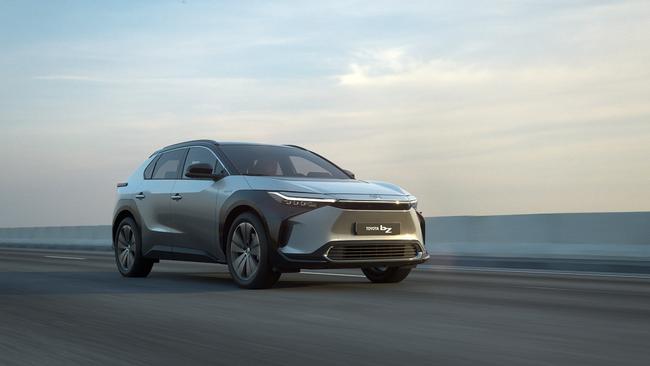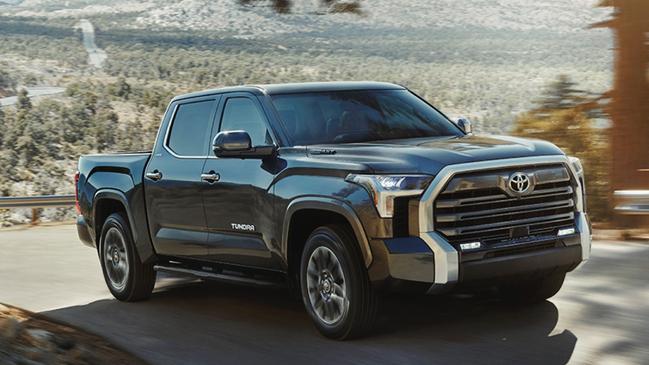Why Toyota believes ‘people can’t pay’ for electric cars
A car manufacturing giant says government and industry must take a balanced approach to transport as emissions regulations loom.
Motoring News
Don't miss out on the headlines from Motoring News. Followed categories will be added to My News.
Toyota Australia is not ready to go all-in on electric cars, believing the technology is unsuitable for millions of Aussie motorists at present.
Sean Hanley, vice president of sales, marketing, and franchise operations for the automotive giant, says high costs and structural shortcomings prevent battery electric vehicles (BEVs) from being a viable option for many drivers.

Toyota will introduce its first electric car in 2023, as part of a shared platform with Subaru.
Hanley says that although the electric Toyota bZ4X “is going to be a great car, it’s not going to be a cheap car”.
The battery-powered bZ4X is priced 56 per cent higher than the Toyota RAV4 in the US, or 42 per cent more than a RAV4 Hybrid.

“I just can’t for the life of me understand how in a very narrow time frame you can convert to BEV and satisfy the market in Australia,” Hanley said.
“People can’t pay this much for these cars.
“This is the point that gets lost in the agendas and the argument.”
The broader automotive and transport industry is grappling with how Australia should pave the road toward electrification. Hanley says the Albanese Government is working with manufacturers to find an approach that encourages motorists to adopt more efficient – or electric – vehicles.

The Japanese manufacturer has faced criticism for dragging its heels on electric cars, introducing the technology – overseas at least – well after several major rivals.
“My response to ‘Toyota [is] perceived to be ‘lagging’ is one of somewhat frustration,” Hanley said.
“We’ve sold over 230,000 hybrid vehicles in the Australian market since October 2001.
“I think that we’ve played a significant role in those 22 years to reduce our carbon footprint in the Australian domestic market.
“To suggest that we’re behind is an incorrect statement.”

Even so, the brand’s biggest seller is the diesel HiLux ute. It will not adopt battery power any time soon, though hybrid tech is a future possibility.
“I’ve always been taught in my years of business that the customer comes first,” Hanley said
“I don’t think anything has changed in this regard.
“How are you going to go and tell all these farmers that they’ve gotta have battery cars that aren’t practical, don’t work for them and cost a fortune?”
While the brand is relatively cool on electric cars, Hanley said Toyota is “really excited” about a project to introduce enormous US-sourced Toyota Tundra utes in Australia.

While the car has not been confirmed for introduction, 300 examples look set to go into customer garages as part of a real-world trial next year.
“The reaction has been overwhelmingly positive,” Hanley said.
“It was the first dealer meeting I can recall in many decades where I’ve heard whistling, cheering and 400-and-something people in the room were really excited. As we are.
“We have good intentions.
“Clearly we want to bring it to market.”

Quizzed as to how the Tundra can fit with Toyota’s carbon emissions reduction targets, Hanley says the hybrid-powered truck represented “balance and offset” for the brand, which plans to offer a mix of hybrid, plug-in hybrid, hydrogen-powered and electric cars well into the future.
“We know as a car company if we don’t deliver in the future, carbon neutrality, we don’t survive, it’s as simple as that,” he said.
“It’s a matter of how and when.”


